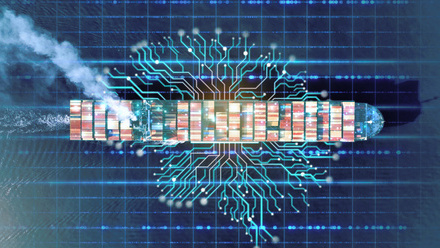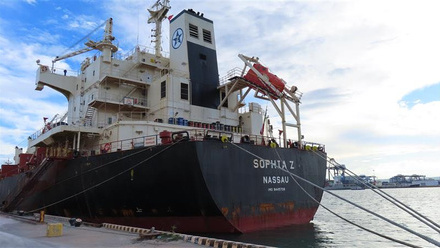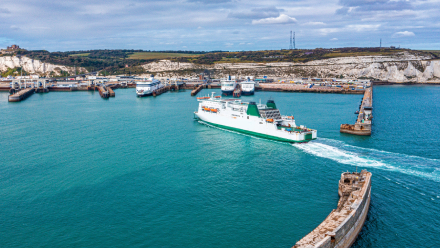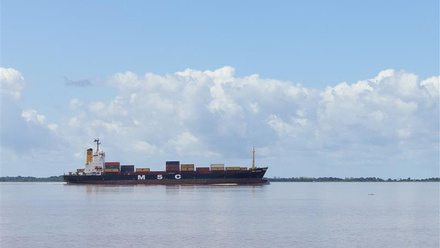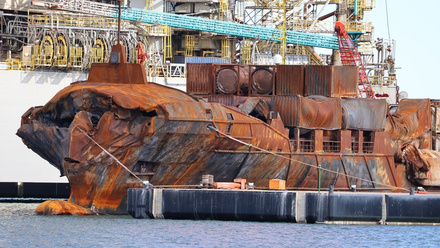Shipping to follow cars into the world of electrification
The ALL-DC-SHIPS project represents attempts to advance the electrification of maritime transport.
“The maritime industry is undergoing a significant transformation driven by the need for improving sustainability and efficiency,” says Professor of Power Electronics Systems, Pietro Tricoli, University of Birmingham, discussing the ALL-DC-SHIPS project, which underpins this change by introducing an all-DC power distribution system for marine applications.
The advantage of using DC for the primary grid is the possibility of regulating the speed of the generators to adapt to the power requirements of the electrical loads. Tricoli explains that for each power level, the speed can be regulated to the point of optimal efficiency of the generators, potentially reducing fuel consumption by 5-10%.
“A full DC grid enables the feeding of power converters directly from their DC link, saving a power conversion step to rectify the AC power into DC power. As nearly all the power on a vessel is distributed through a power converter, a full DC grid would significantly reduce the cost of power converters as well as power losses by 15-30%, using a novel semiconductor technology based on silicon-carbide devices,” he explains.
Better voltage and higher efficiency
Another breakthrough of the project is the adoption of solid-state protections that would be able to address one of the key challenges in DC power systems – due to their capacitive nature, they have short circuit currents higher than traditional power systems.
“The expected benefits are the reduction of losses in the power system, a better voltage regulation, and a higher efficiency of the generators, all thanks to the new DC technology,” says Tricoli. “Solid-state circuit breakers can detect and interrupt a short circuit much faster than conventional electromechanical circuit breakers, thereby significantly reducing the effects of short circuit events.
“By using these technologies, this project has the objective of enhancing energy efficiency, reducing fuel consumption, thereby minimising environmental impact. The project aligns with the global push for decarbonisation in the shipping sector, while ensuring the operational safety, reliability, and effectiveness of vessels.”
The primary technical challenge of the project is the development of three components that are essential for the design and deployment of a full DC power system.
“The DC-DC converter of the primary DC grid will have to be marine certified to enable testing on a real vessel,” states Tricoli. “Also, it will be necessary to verify the performance of the new solid-state circuit breakers, especially in fault detection and fault clearance scenarios, but also to study for which criteria they are a replacement for the traditional electro-mechanical systems.”
Tricoli adds that a further challenge is to demonstrate and quantify the reduction of the fuel consumption when the vessel is in normal operations where test conditions will be variable.
While Tricoli concludes that maritime electrification is an exciting domain, this sector presents unique challenges that can’t be fixed at once with today’s technology. “Batteries alone are not a viable solution for all use cases and new technologies like metal-air batteries that could be a real game changer are still at a too-low technology development stage to be considered over the next few years,” he says.
The major challenge remains achieving fuel-free vessel ranges of thousands of miles, but Tricoli acknowledges that today, there are no solutions that could even theoretically achieve that: “Low-carbon fuels appear today the most viable option, albeit they also have significant technical hurdles to overcome.”
But Tricoli predicts that maritime electrification will increase significantly for coastal and intra-water navigation, where there are more opportunities to charge the battery between journeys: “Achieving a good level of electrification for these vessels would be a significant step forward, as they operate in areas close to people, where air quality is more important.”
Tell us what you think about this article by joining the discussion on IMarEST Connect.
Discover more about this topic by joining the Marine Electrical Special Interest Group.
Image: ALL-DC-SHIPS demo vessel. Credit: Jan De Nul NV.

